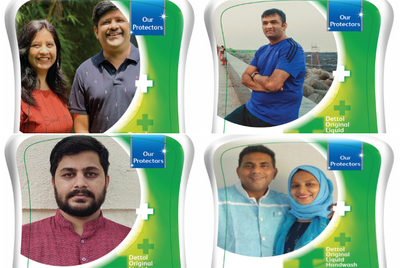
Aim
Dettol's Chinese consumers typically only used the product for floor cleaning, keeping a large 1.2 litre or bigger bottle under the sink. The brand wanted to drive the idea that Dettol could be used for much more than this. In doing so, it hoped to increase its recognition in Tier 2 cities of China, where less than 10 per cent of households were using the product.
Execution
The campaign centred on making brand ambassadors out of consumers themselves. Advocacy selected 4000 high-profile 'influencers' in Nanjing, local mums with connected networks, and introduced them to Dettol's new spray-on product. It sent each influencer 10 bottles each to test themselves and pass on to their friends if they were satisfied.
The product appeared so successful, that the original 40,000 samples were quickly distributed. So Advocacy upped the campaign to supply the market with another 50,000 bottles. These were distributed via individual networks, as well as through community organisations and local shops.
Results
The results of this campaign were outstanding, Advocacy representatives said. It found 46 per cent of the target consumers were reached by the campaign, with all brand indicators in Nanjing improving significantly. Top-of-mind awareness, for example, went up by 500 per cent in the target city.
The results were also backed up by strong sales growth, shipments of Dettol AL rising by more than 80 per cent against the pre-campaign average.
Finally, the campaign was also an award winner - a unique achievement for a word-of-mouth campaign from China. It won two WOMMY awards from the Word-of-Mouth Marketing Association in 2011. Asit Gupta, CEO of Advocacy, said the trick was in marketing with consumers, and not at them. "Results of our Dettol campaign using moms as brand advocates prove that," he said. "If we can create word-of-mouth around Dettol liquid, a product with a century old product formulation, imagine what can be done for other products."



.jpg&h=334&w=500&q=100&v=20250320&c=1)





+(900+x+600+px)+(3).png&h=334&w=500&q=100&v=20250320&c=1)
.jpg&h=334&w=500&q=100&v=20250320&c=1)





.png&h=268&w=401&q=100&v=20250320&c=1)
.jpg&h=268&w=401&q=100&v=20250320&c=1)
.png&h=268&w=401&q=100&v=20250320&c=1)
